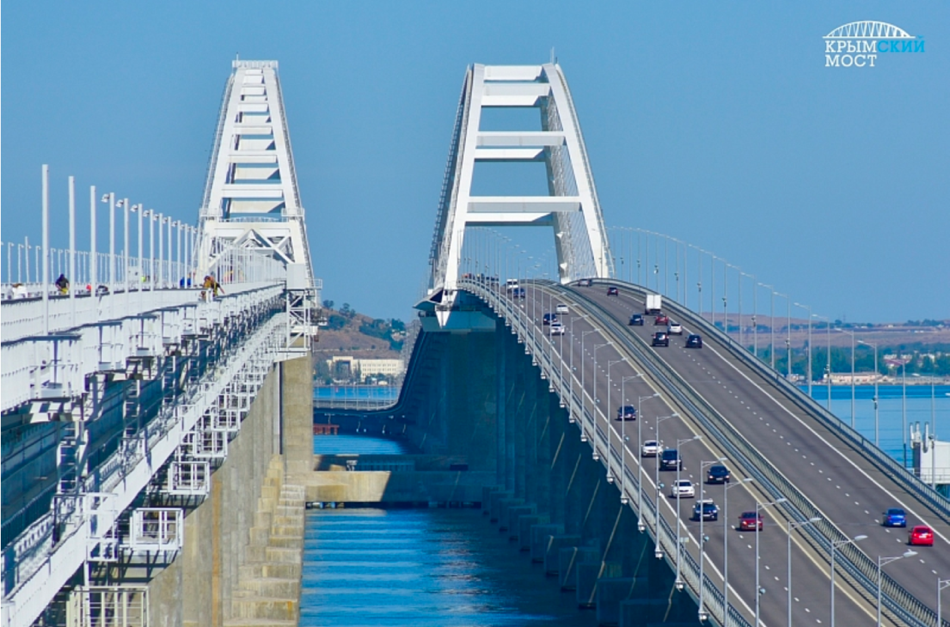
Size isn’t everything, as the old saying goes. In the case of the Kerch Strait Bridge, it is. Russia has built what is properly known as the Crimea Bridge deliberately too low for a great number of the cargo ships upon which Ukraine depends for its trade to pass beneath it. The bridge span, between the Taman Peninsula of Krasnodar Krai and the Kerch Peninsula of Crimea, stands just 35 metres above the water. Strange, when its length is an impressive 19 kilometres, making it the longest bridge in Europe. But its low height means that large cargo vessels, capable of carrying Ukraine’s metal exports and other bulk goods, are simply too big to pass underneath. They have to have a maximum height of just 33 metres to do so safely; a great many of today’s large merchant vessels are higher than that. It’s no accident. It’s been estimated that 144 of the merchant vessels that used to ply to and from Mariupol can no longer get to the Sea of Azov. Russia’s annexation of Crimea was a crime under international law, so the bridge is illegal in any case, but building it low enough to limit maritime access to Ukraine’s main ports was clearly an unpleasant, aggressive act designed to damage Ukraine, just as is Putin’s support for pro-Russian rebels in the east of the country. Vladimir Putin does not do things by accident. Construction of the bridge, which cost $3.7-billion (€3.06-billion), began virtually as soon as the unlawful seizure was complete.
It was certainly seen as illegal by the European Union, which has applied sanctions to two people and four companies involved in the bridge’s construction. This brings the total number of people being subjected to restrictive measures in connection with the seizure of Ukraine to 177, as well as 48 entities. The sanctions include a travel ban and an asset freeze. But Putin is no doubt amused by measures that can’t hurt him while he expands his ‘empire’. Russia’s economy is strange; the Kremlin has largely isolated it from the global economy using its oil and gas sales in order to build up reserves. It makes it virtually immune to international shocks whilst also having very low debt levels, but developing it further is not an option. It keeps Russia’s economy safe, but stagnant and perhaps dangerously dependent on fossil fuel exports, which make up 60% of the total, with the EU its biggest customer. Its innovations and developments in the field of new technology come nowhere near those of China. Russia’s current rate of growth, says The Economist, is just half the rate experienced by the old Soviet Union between 1977 and 1985.
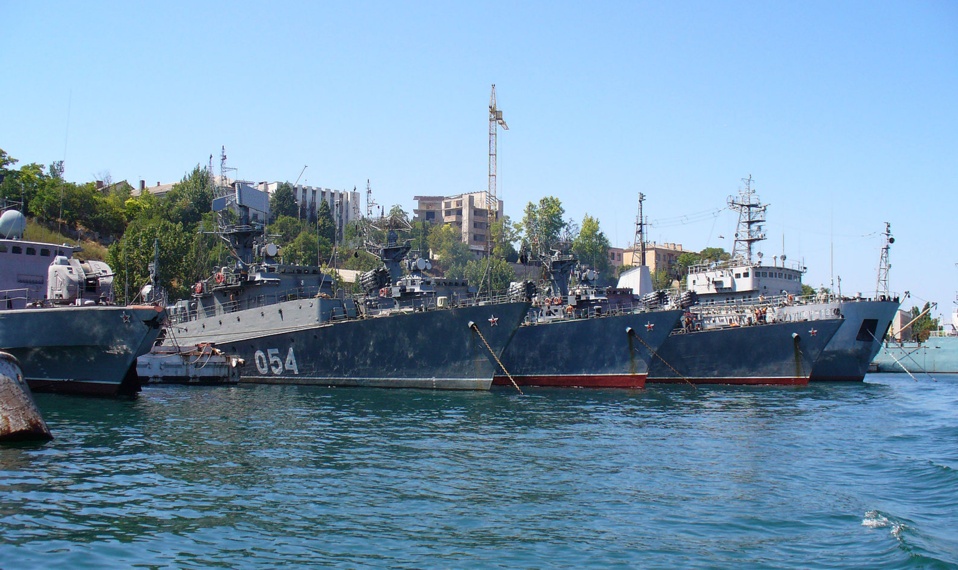
Still, it must frustrate, if only slightly, the people and companies named in the sanctions that have been imposed by various countries and organisations. The EU, like many western bodies and countries, does not recognise Russia’s annexation of Crimea and the city of Sevastopol on the other side of the country. It was, in fact, the first such annexation since Adolf Hitler’s Nazi Germany decided to seize the Sudetenland from what was then Czechoslovakia. The EU’s action means that the 177 people listed can neither enter the EU nor pass through it on the way to somewhere else, while the asset freeze means that any funds or economic sources held in the EU, either by the listed individuals or by named companies that were involved in the construction work are blocked from accessing them.
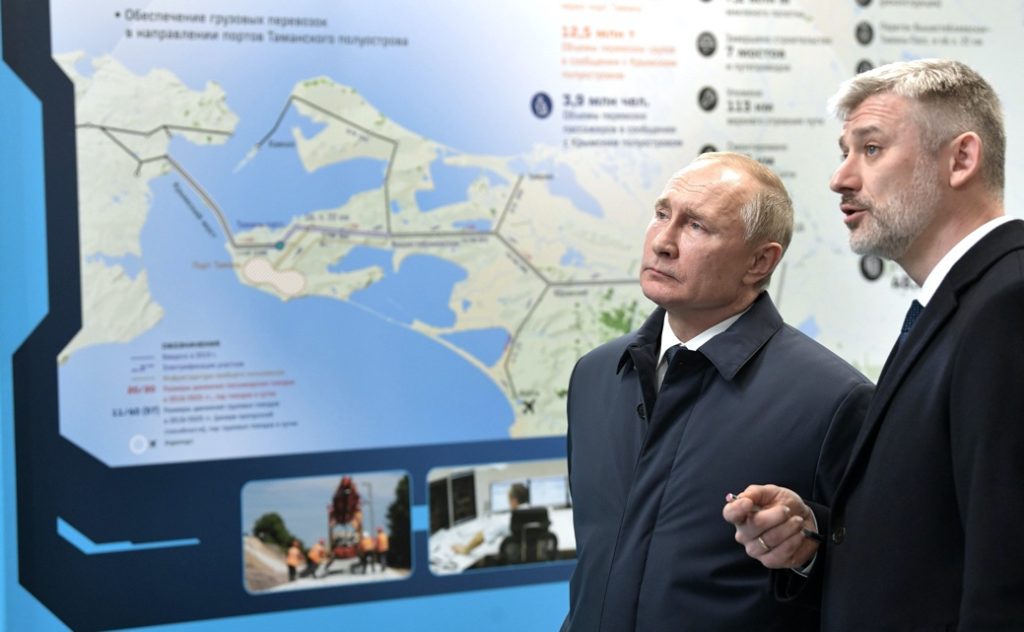
Not that any of this deters Putin from trying to make things worse for the Ukrainians. Indeed, it smacks more of spite than of any sensible economic planning. One must assume that in the unlikely event that Russia regains total control of Ukraine it will want its conquest to flourish. Having seen the anger demonstrated by ordinary people in Maidan Square against the country’s ambitious northern neighbour, with young people rattling tins to collect for those fighting the Russian-backed rebels, I cannot imagine them surrendering easily to Putin’s bullying. Perhaps that’s not the point. One is left with the inescapable conclusion, however, that the only way to stop Russia from trying to inconvenience Ukraine even further would be if Kyiv voluntarily agreed to give up the country’s independence. That, of course, is not going to happen. Nor to be perfectly honest is it likely that democratic means will unseat Putin any time soon. His political opponents tend to end up poisoned or dead from some similar cause, or in prison on trumped-up criminal charges, where they will undoubtedly suffer and – if Putin is lucky – die. Russia has become what it was under Stalin: a police state. The difference (apart from the numbers being executed all over the vast country, far fewer than when Stalin was in charge) is that Stalin was supposedly defending Marxism-Leninism, even if neither Marx nor Lenin would have recognised such mass murder as justifiable, while Putin is defending what would seem to be a kleptocracy. It’s not just the seizure of other countries that he seems to have learned from Hitler. It’s the brutality and the refusal to accept that anyone else’s point of view may matter. His own pre-eminence seems to matter more to him that that of Russia itself.

There’s no doubt that EU sanctions will be unpopular in Moscow but they won’t make any difference. The EU first imposed sanctions on 17 March 2014, and yet Crimea and Sevastopol remain firmly in Russian hands and likely to stay that way, while the Kerch Strait Bridge has been constructed in the years since then in defiance of international opposition. In May 2020, six years and two months after the sanctions were imposed, Putin personally led a fleet of construction vehicles across the new bridge, sending his one-finger message to Kyiv (as well as to Washington and Brussels and possibly Beijing) that Crimea and Sevastopol are now Russian and likely to remain so. He had said that the bridge would “bring us all closer”, although that is the last thing most Ukrainians want. “Bringing people closer together” was clearly not the intention in deciding to build the bridge, either. It was to impose an economic stranglehold on Ukraine, which is being further backed up with forced “inspections” of vessels passing through the strait, which can take more than 2 days to complete. Some shipping companies don’t want to risk such costly interruptions to their schedules, which Russia has almost certainly foreseen. To be honest, though, it’s unlikely that the people of Sevastopol would prefer to be ruled by Kyiv.
SILENT GUNFIRE
Founded by Prince Grigory Potemkin in 1783 following Russia’s capture of the Crimean khanate from the Ottoman Empire, its population of almost 400,000 is made up ethnically of 75% Russian people and only 20% Ukrainian. Potemkin led his empress, Catherine the Great, on a tour of Crimea after successfully capturing it. That had involved a peace agreement with the Cossacks and the virtual annihilation of the Cossack Zaporizhian Sich, a territory the Cossacks had controlled against raids by various groups unsympathetic to the Cossack people.
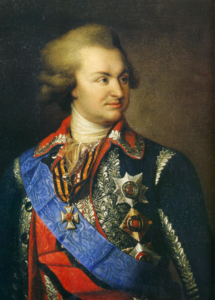
‘Sich’ means fortification or fortified area. It meant nothing to Catherine, however, who calmly absorbed the territory into her Tsarist state. Potemkin, you may not be surprised to learn, was one of Catherine’s many lovers. ‘Zaporizhian’ is a contraction of the words ‘za porohamy’, meaning ‘beyond the rapids’, the rapids in question being on the Dnieper river which has lain at the centre of so many conflicts down the ages. It rises in the Valdai Hills near Smolensk, in Russia, then flows through Belarus and Ukraine to the Black Sea. It’s Europe’s third most important river; only the Volga and the Danube are greater. What’s more, its north-south flow effectively divides Ukraine in half, with the western side decidedly pro-Ukrainian and, as a consequence of more recent events, pro-western, while the eastern half (or nearly half) is more ambivalent or even actively pro-Russian. The war in Donbass, where pro-Russia rebels are secretly (but obviously) supported by Russia, has been dragging on for seven years. Ironically, it’s quite probable that the name Potemkin today is more closely associated with the film entitled “Battleship Potemkin”, the famous silent movie produced in Soviet Russia by Mosfilm in 1925 and directed by Sergei Eisenstein, purporting to dramatize the 1905 mutiny by the crew of the eponymous battleship against their tsarist masters at the height of the failed revolution. The movie was named as late as 1958 among the greatest of all time. In it, there is a shoot-out on the Odessa Steps with Tsarist troops firing into a crowd of ordinary citizens while a baby carriage runs away, bouncing dangerously down the steps with its infant passenger and with gunfire ringing out on every side. The scene was copied in the 1987 movie about American gangsterism and the FBI, ‘The Untouchables,’ and later recreated as a brilliant and hilarious pastiche in the comedy, “Naked Gun 33⅓”, with no fewer than four baby carriages, a lawn mower, the Pope and a Jihadist bomber among the people and items tumbling down the stairs at Union Station while gunfire rings out all around them. Yes, it’s silly but it still makes me laugh.
The long war in Eastern Ukraine has so far claimed more than 13,000 lives and displaced over a million Ukrainians. They are among the 2.8-million Europeans to have been displaced by internal conflict, according to the United Nations High Commissioner for Refugees. Indeed, the issue was raised in a report to the Parliamentary Assembly of the Council of Europe by Fabien Gouttefarde, a member of France’s Assemblée Nationale. “Many Europeans are refugees in other countries,” he wrote, “in particular Ukrainians who fled the war in eastern Ukraine and the Crimea; more recently, the conflict over the Nagorno-Karabakh region has led to new waves of displaced persons.”
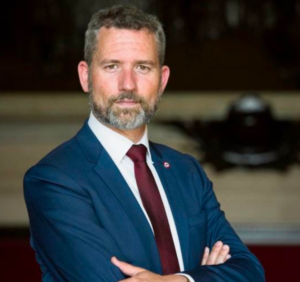
He told me that the Assembly is pressing all the Council’s member states to sign up to protecting the human rights of displaced persons, with particular emphasis on Russia and Turkey. Gouttefarde’s report, passed overwhelmingly by the Parliamentary Assembly this April, called on member States to transpose the standards of international law into national legislation, and to “introduce therein the principle of universal jurisdiction of national courts” for arbitrary displacement and other war crimes or crimes against humanity. He spoke to me of the terrible things that armies do when deliberately displacing citizens, such as rape and torture. “First and foremost, we must protect young girls,” he said, “we must pursue wrongdoers and we must try to prevent it from happening.” Of course, getting Russia to sign up to something is one thing, getting it to abide by the rules it has signed up to is something else altogether.
Moscow, however, seems to think that the displacement of so many Ukrainians is not enough and has recently brought over 100,000 troops, together with heavy equipment, right up to Ukraine’s border. They pulled back again from Crimea and the Ukrainian border in late April. That hasn’t saved Russia from a stark warning against further military adventurism. “Should military build-up lead to an invasion of Ukraine by Russia,” warns a report adopted by the European Parliament in late April, “the EU must make clear the consequences for such a violation of international law and norms would be severe,” MEPs agreed. “Such a scenario must result in an immediate halt to EU imports of oil and gas from Russia, the exclusion of Russia from the SWIFT payment system and the freezing of assets and cancellation of visas for Europe of all oligarchs tied to the Russian authorities.” If carried through (and that may be a big ‘if’) it would certainly have an impact on Putin’s realm.
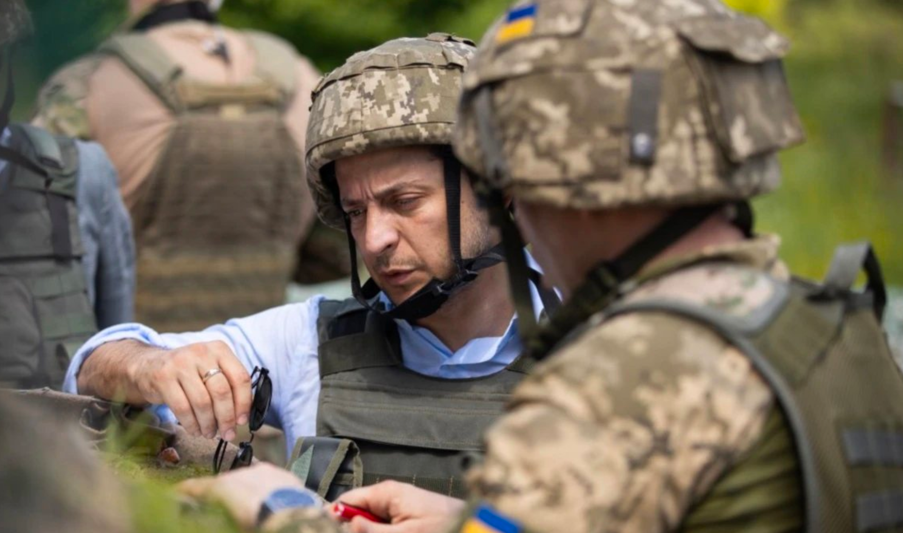
Meanwhile, as Ukraine argues that closing parts of the Black Sea to foreign warships is illegal, Putin and his government are threatening dire retribution if anyone should look like lifting a finger to help the government in Kyiv. The bellicose rhetoric coming from Moscow resembles the outpourings prior to the 2008 war in Georgia, which is especially worrying. Putin’s favourite propaganda television station, Russia Today (RT), has been getting increasingly militant and has urged Putin simply to annex the entire Donbass region, which would mean more war. The station’s global editor-in-chief, Margarita Simonyan, has been calling for it and one member of the UK’s Scottish Assembly, Stewart McDonald, has been imploring the British government to add her name to the list of those sanctioned for their bellicosity and support for bloody repression. The problem is the wealth of Russian oligarchs who are supportive of Putin. However disapproving a western country may be of Moscow’s politics, a lot of western banks and financial institutions are falling over each other in the race to help launder their ill-gotten gains. McDonald has admitted that the UK government, like others in the West, has sought to support Ukraine in constructive ways, but Britain remains a provider of laundry services for dirty money.
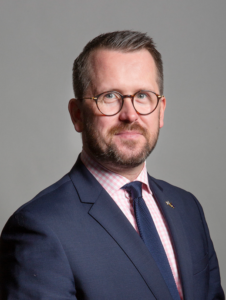
A number of oligarchs have benefited hugely from Putin’s kleptocracy and, as McDonald has pointed out, now mix merrily with British cabinet members and those sitting comfortably in the House of Lords. With Britain now having lost its position as the centre of financial activity in Europe following the UK’s decision to leave the EU, the various banks and financial institutions are naturally reluctant to turn away wealthy clients, however dirty their money.
But Britain is not alone in offering the comforts of home to Russian crooks, which encourages Putin and his followers into believing there will be no unwelcome consequences arising from their attempts to strangle Ukraine. Because that is what Russia is trying to do in the Sea of Azov. Quite apart from its unnecessarily low bridge, Russia has been imposing frequent “Freedom-of-navigation” restrictions, including the Russian Federal Security Service (FSB) Coast Guard, which has been boarding and inspecting merchant vessels travelling through the Kerch Strait to or from Berdyansk and Mariupil, both Ukrainian ports that are vital to the country’s exports and to its supplies of essential goods. Some of these incidents, clearly intended to intimidate and to discourage shipping companies, have taken place just 8 to 11 kilometres offshore. Consider that together with the low height of the Kerch Bridge and it becomes clear that Moscow wants its hands on Kyiv’s jugular.
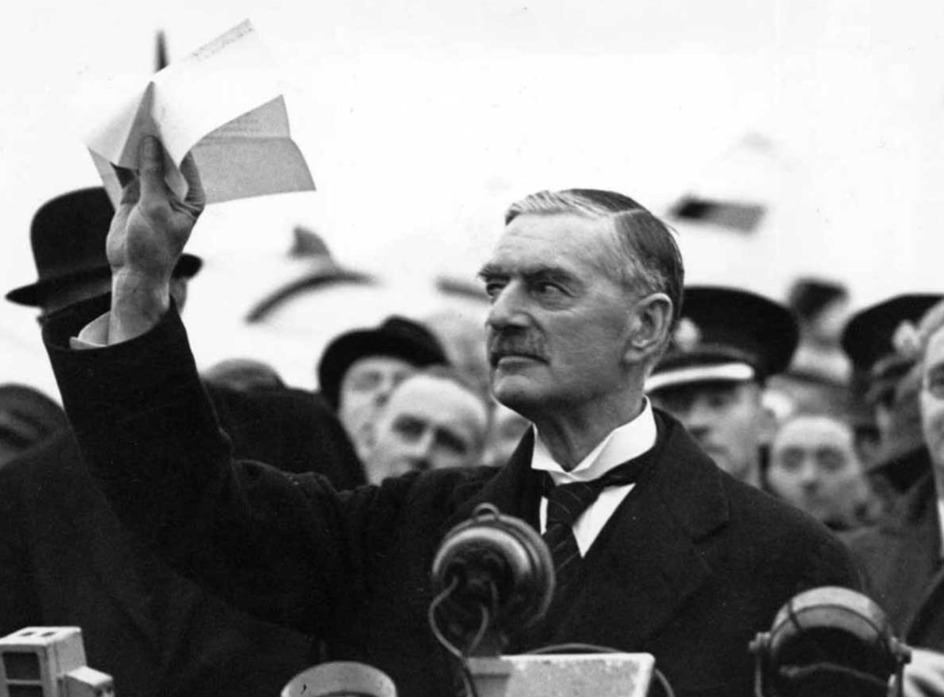
It would seem we may not have not seen the last annexation. It is to be hoped that Ukraine is not viewed, as the Sudetenland of Czechoslovakia was by the then British Prime Minister Neville Chamberlain, who said “How horrible, fantastic, incredible it is that we should be digging trenches and trying on gas-masks here because of a quarrel in a far-away country between people of whom we know nothing.” With Putin, Chamberlain-style appeasement is probably not a good idea.
BOBBY SHAFTOVSKI’S GONE TO SEA, LOTS OF MISSILES ON HIS KNEE
The answer would appear to be “not a lot”, which is what Putin is counting on. Washington has strongly criticised Russian plans to limit access to the Black Sea and the Kerch Strait for most of the next six months due to military exercises. It’s outrageous for any one country to tell another that it must close its ports because of another country’s military exercises and it begins to look like a deliberate provocation to see just how far Russia can push without negative consequences. The U.S. Defence Department has described the Kremlin’s plan as “just the latest example” of Russian aggression in the Black Sea and insisted that the US’s own plans would continue unimpeded. Pentagon press secretary John Kirby told reporters: “We have routinely operated naval warships in the Black Sea and that will continue. We call on Russia to cease its harassment of vessels in the region and reverse its build-up of forces along Ukraine’s border and in occupied Ukraine.” (Which they now have). I can’t imagine such a statement putting much fear into Putin’s government. After all, his country boasts the latest supersonic Onyx anti-ship missile systems, which are exceptionally fast and very effective. He may not use them, however.
A recently-released video suggests he may fall back on a missile system that first saw action during the Cold War. The Utes launch system, contained in an elaborate bunker, is still supposed to be defending Crimea. Shown on the Russian Defence Ministry’s own TV Zvezda in October 2020, it was a 3M44 Progress that was being launched.
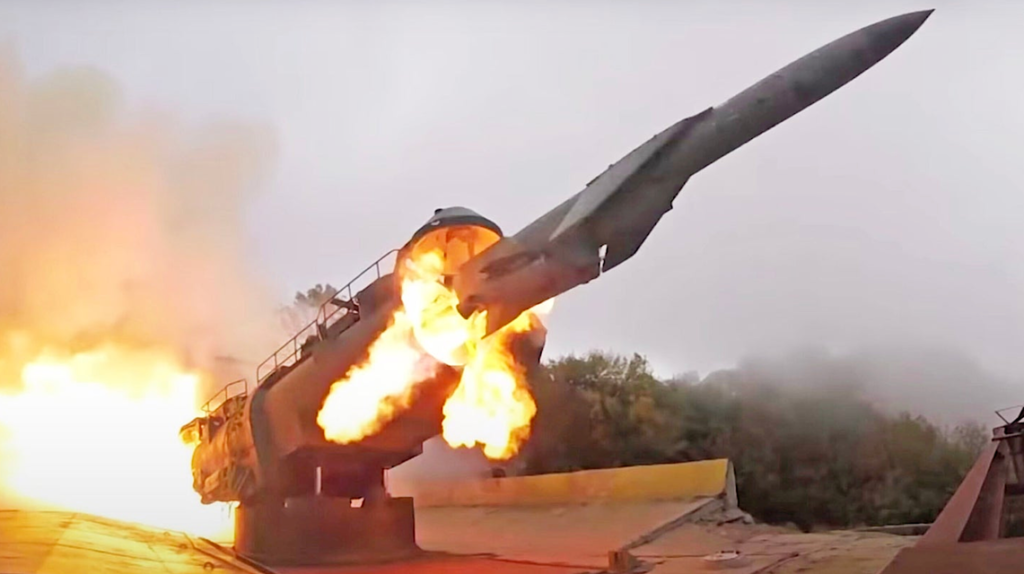
In service for almost 50 years, the 3M44 Progress anti-ship missile system is still in use, it seems, for the defence of Crimea, although the Utes launch system can also handle the much newer Onyx missiles. In fact, the 3M44 launch may have been designed to test the anti-missile defensive capabilities of the class-leading Russian Navy frigate, Admiral Grigorovich, whose Shtil air defence system brought down the incoming missile at a safe distance. Of course, Putin’s available arsenal doesn’t restrict him to using just the weapons we know about.
The Utes coastal-defence anti-ship missile launch system, built in 1954, is claimed by Russia to be the world’s first land-based anti-ship missile system. I suppose we must discount the many anti-ship batteries of canon that have been used since the invention of gunpowder to repel enemy ships and sink them, or indeed the mysterious ‘Greek Fire’ of classical times which could allegedly set enemy ships ablaze.
My grandfather’s ship was sunk by a Krupp shell fired from a Turkish shore battery at the Dardanelles during the First World War, although one failed to explode and is still standing on the bookshelf in front of me as I write. Codenamed ‘Object 100’ by the Russians, the Utes launch site is built into cliffs at Balaklava and was brought into service in 1957. The early sub-sonic Sopka missiles were replaced in the early 1960s by the super-sonic P35B type, which in 1982 gave way in turn to the 3M44 Progress, which had an improved range of almost 450 kilometres and a 350-kiloton nuclear warhead. Since then, Russia has developed the formidable P-800 Onyx missile, which the Russians call the Oniks (or the Yakhont in its export version), Which is described by the Military-Today website as the deadliest anti-ship missile in existence. It has a 300-kilometre range and can be equipped with a conventional or a nuclear warhead.
It makes my old Krupp seem very insignificant, even though one just like it sunk a British Royal Navy warship. Sevastopol is some way around the Ukrainian coast from the Kerch Strait and its unhelpful bridge but that is of little consequence for a modern missile. The 3M44 Progress may not be a modern missile in some respects but it could still sink a ship and, being out of date, is unlikely to be Putin’s only option in the region. The footage of the 3M44 Progress was posted online on October 14, 2020, by TV Zvezda, the official television channel of the Russian Ministry of Defence. The accompanying report suggests the missile-firing exercise occurred after the large-scale Kavkaz-2020 manoeuvres, which took place partly in the Black Sea, in late September.
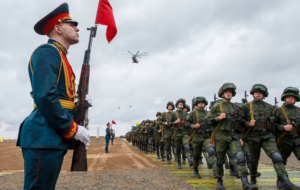
Were it to be Russia’s only option there, it would be almost (but not quite) the equivalent of issuing American marines with muzzle-loading Jäger rifles with which to confront Russian aggression. Even so, the West’s response to Putin’s unbridled and careless aggression has been half-hearted at best. On its website, NATO writes that: “NATO stands with Ukraine, and will continue to provide political and practical support to the country within the framework of our established cooperation. NATO will continue to monitor the situation.” I don’t think that will give Putin many sleepless nights.
UNLIKELY THREATS, UNLIKELY AGREEMENT
Washington has expressed alarm about Russia’s plan to close off part of the Black Sea for the next half year in order to hold a naval exercise, and has stated that the United States will not be deterred from sending naval vessels there, military exercise or not. The US Defense Department has stated that the Kremlin’s action is “just the latest example” of Russian aggression in the Black Sea and insisted it would have no impact on US plans. “We have routinely operated naval warships in the Black Sea and that will continue,” the Pentagon’s press secretary, John Kirby, said at a press conference, although it would seem that there are none there at present. “We call on Russia to cease its harassment of vessels in the region,” Kirby said, “and reverse its build-up of forces along Ukraine’s border and in occupied Ukraine.” Well, at least they’ve done that. It sounds a little like the old story that the Emperor Nero “fiddled while Rome burned”, although the fiddle family of instruments were not invented until more than a thousand years later and furthermore, Nero himself was at his villa in Antium when the fire started, 56 kilometres away. When he heard about it he rushed back to organise measures to house those left homeless. Still, it’s a good way of suggesting inaction and relative disinterest when something bad is going on. And Nero was an awful person anyway.
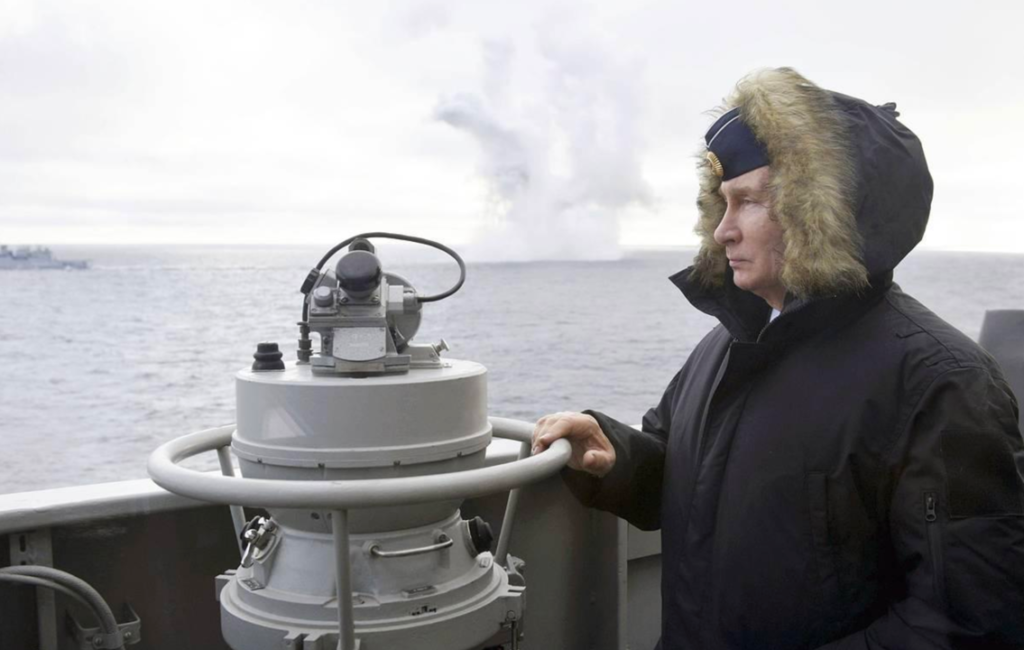
Unlike Nero, Putin has not shifted the blame for a major disaster onto a disliked minority, in the way in which Nero blamed the fire on the Christians. But he does blame anyone he sees as a potential rival, ruthlessly getting rid of him through cooked-up charges of some more or less fictional crime or else through extra-judicial murder. He has issued some 200,000 of the Donbass rebels with Russian passports, giving him an excuse to intervene militarily if they feel “threatened”. According to The Economist, “Military analysts doubt that a full-scale invasion is afoot – the troop movements are too blatant for a surprise attack. But Mr. Putin’s navy has threatened to block the Kerch Strait, cutting off parts of Ukraine from the Black Sea.” Of course, it could all be shadow boxing: posing as the big, tough leader afraid of no-one just to cover up his own nervousness and vulnerability, rather like the famous Wizard of Oz. His speech to the nation was full of tub-thumping warnings to the West. He even suggested a Western plot to overthrow the Belarussian president, Alexander Lukashenko, based on the report being debated at the Parliamentary Assembly of the Council of Europe, calling for urgent electoral reform in the country. The report’s writer, Lord David Blencathra, a Conservative life peer and former MP, seems a most unlikely plotter. I asked him if he thought his report could be viewed as an attempted coup.
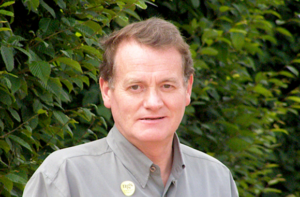
“It’s nonsensical,” he replied, “Absolutely nonsensical. In preparing my report, which was approved by the Parliamentary Assembly on Wednesday, in the preliminary discussions in the Political Affairs Committee, I was constantly accused by some of the Russian delegation that we were being dictatorial towards Belarus and I said we’re not.” It was clear from our conversation that Lord Blencathra did not understand the Russian objections and found them both frivolous and worrying. “Belarus is an independent country,” he insisted. “We have offered them a menu of things they can do if they want to join the Council of Europe and if they want their elections to be free and fair.” Judging by the reaction of the Council’s Russian delegates and by Putin’s egregious threats, they don’t want either, or at least their leaders don’t. Putin would be very unhappy to see free and fair elections in Belarus. He prefers leaders he can control, like Lukashenko. He doesn’t like games of chance he could actually lose.
Russia has at least stopped its FSB Coast Guard inspections since Ukraine started putting vessels from its own Navy and State Border Service on escort duty for vessels sailing to and from its main ports. Russia has also reduced the waiting time for vessels wanting to enter the Kerch Strait after a threat of Western sanctions, although it later extended the wait for vessels heading out of the Sea of Azov, which suggests Russia wants to impede the progress of Ukrainian exports. It would seem that Russia tightens its grip when trying to put pressure on Ukraine but loosens it when trying to demonstrate its ‘good will’ to the West.
There seems to be precious little ‘good will’ at present. Russia closed off several areas of the Black Sea on 24 April, with the restrictions to stay in place until 24 October, saying, nevertheless, that the restrictions on foreign naval vessels will not affect the Kerch Strait, according to the Russia news agency, RIA. Is there a reason for all this aggressive posturing? The Economist thinks there is. “Mr. Putin is weaker than he looks,” it writes in a leader column, “but that makes him dangerous. His previous Ukrainian adventures came when the Russian economy was in trouble and his polls needed a boost. Today his personal polls are sliding and barely a quarter of Russians support his party.” The protests in January against the arrest of Alexei Navalny were the largest Russia has seen in a decade, which perhaps explains why his speech to the nation was accompanied by the arrests of several of his critics. The fact is that with Russia’s inward-looking economy it’s very hard to make sanctions work. For one thing, everyone in the West would have to sing from the same song sheet and they don’t. Germany won’t block the Nord Stream 2 gas pipeline, even though it is intended to put Europe into a Russian stranglehold while bypassing and thus harming Ukraine. Work on the pipeline should stop, but it probably won’t. In much the same way, British financiers should stop cosying up to crooked Russian oligarchs and helping them to launder their ill-gotten gains, however much that costs. The Economist reckons that the cost of Putin’s thuggish behaviour should be higher to discourage his hangers on and others from continuing to support him. At present, any opposition party to appear is branded ‘extremist’, however mild.
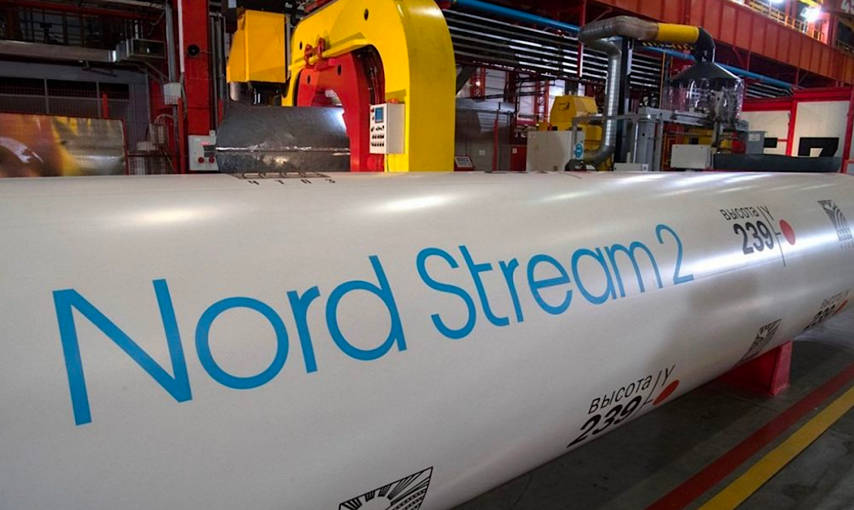
Meanwhile, although a majority in Crimea look to Moscow, rather than Kyiv, human rights in the annexed country are suffering, according to NATO. It makes this claim on its website: “Allies are deeply concerned by the human rights abuses and violations being carried out by the Russian de-facto authorities in illegally annexed Crimea against Ukrainians, the Crimean Tatars, and members of other local communities. These violations include extrajudicial killings, abductions, enforced disappearances, violence, arbitrary detentions, arrest, and torture.” NATO has also condemned the Kerch Strait Bridge and has made what is probably a pointless appeal to Moscow . “Russia’s unjustified use of military force against Ukrainian ships and naval personnel near the Sea of Azov and the Kerch Strait in November 2018 is part of the larger pattern of Russian aggressive actions in the region. In line with United Nations General Assembly Resolution 73/194 from 17 December 2018, we call on Russia to unconditionally release the Ukrainian crew members it detained, to return the captured vessels and to comply with its international commitments by ensuring unhindered access to Ukrainian ports in the Sea of Azov and allowing freedom of navigation.” In fact, Russia returned the three vessels after a year and also the 24 Ukrainian sailors somewhat earlier, three of whom had been injured in the attack.
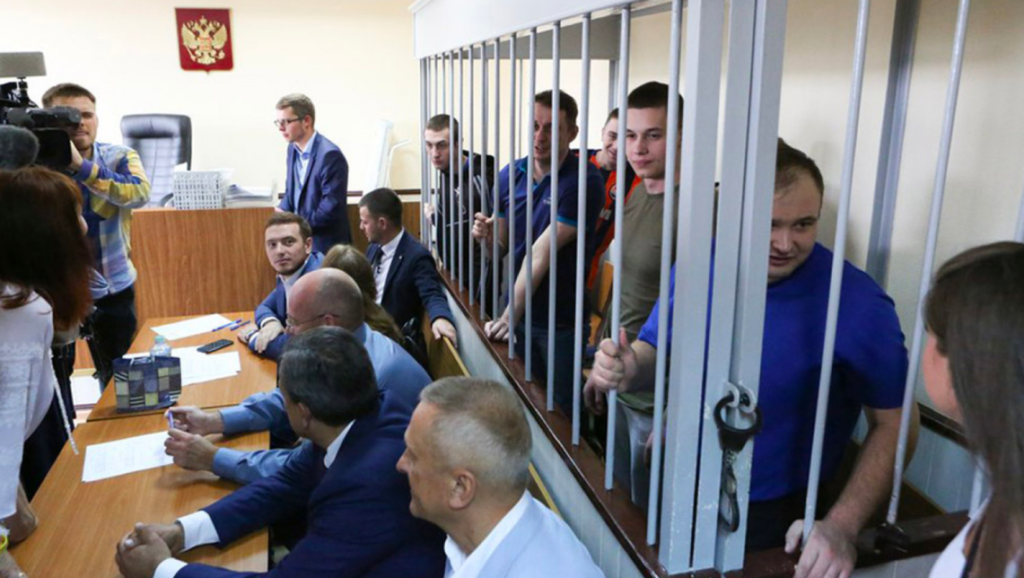
Putin has lost his ‘friend in the White House’ with the departure of Donald Trump and it would appear he may have also lost the leadership of those countries hostile to Western values. That particular crown would appear to have passed to Xi Jinping in Beijing. Putin’s Russia continues to anger the West with disinformation websites, untruthful on-line media and with interference in lawful activities, the Kerch Strait Bridge being an example. And, of course, it still has nuclear weapons, which no-one wants to see it deploy. But it has, perhaps, become more of a nuisance than a threat the West takes seriously. That is especially the case with the new regime in Washington, where President Joe Biden employs and listens to genuine Russia experts. Even so, it would be very unwise to write off Vladimir Putin. He is hard to predict and with his massive arsenal of proven weapons he must be taken into account. Even so, in a world facing the threats of climate change, poverty and disease, he may be more of a distraction than a threat. And I hope he doesn’t block exports from Ukraine; I have a great liking for Ukrainian vodka. Budmo! everyone. It means “Cheers!”

